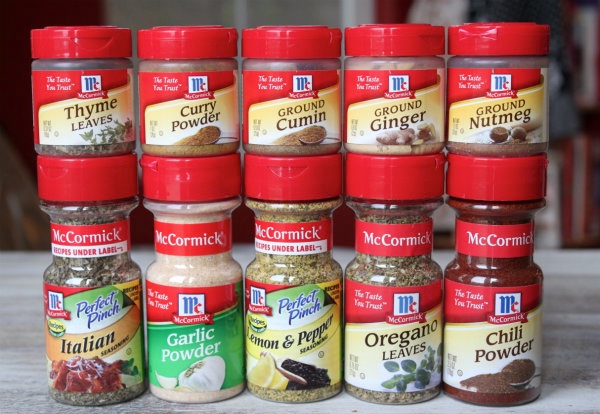Inside a flavor laboratory where new tastes are invented

Tom Vanderbilt, author of the classic book Traffic: Why We Drive the Way We Do, has just published You May Also Like: Taste in an Age of Endless Choice, about the science and business of personal preference. In a terrific excerpt on Wired, Tom visits a lab inside McCormick & Company, the global firm that creates "custom labor solutions" for their own seasonings along with myriad food brands and restaurants. From You May Also Like:
In a search for clarity, McCormick turns to what (McCormick VP of applied research Marianna) Gillette jokingly terms its "human chromatographs": trained sensory panelists. I joined Jason Ridgway and Tess Aldredge, two of McCormick's senior sensory analysts, in a small room that faces, via a two-way mirror, a dimly red-lit room with a round table, around which a number of people were slowly nibbling pretzels from small paper cups. "They taste under red lights," Gillette had told me, "because if they taste two gravies and one is more brown than the other, our senses will say one is meatier and richer than the other." The absence of light and color makes the tasters' job harder, Aldredge said. "You don't get the bias of 'it's red, it's going to taste like strawberry.' You have to think it through. It's very taxing psychologically."
Ridgway flipped a switch, and audio from the other room filtered in, like a transmission from a distant spaceship. The panel's director was asking the panel about "persistence of crisp," which Ridgway defined for me as the "time to change in total quality during chewdown." A "persistence of crisp" scale was provided to the panelists, ranging from cornflakes all the way up to Pringles potato chips. He asked, "Is anybody else getting the burnt-like pieces?"
Then someone uttered the word "musty," which caught my ear. What does mustiness have to do with pretzels, and does anyone actually want a musty pretzel? "One thing to keep in mind when you hear terminology like musty or burnt," Ridgway told me, "is that they're describing the product. It's not a negative thing to have a musty or burnt note." Aldredge added, "Musty shows up in a lot of products. Often they'll describe these little water samples"-she pointed to one of the palate-cleansing paper cups-"as slightly musty." "They can usually tell when we need to change the filters on the filtration systems," said Ridgway. Even though mustiness does actually stem from a chemical compound--alpha-Fenchyl alcohol--Ridgway says a term like "musty"-or "wet dog" or "dirty socks"-is meant to be a bit more "user-friendly." He cautioned that "everybody has a slightly different interpretation of what musty is; you hear everything from a wet basement to old books." Aldredge chimed in, "Mine is hose water."
(Wired)
